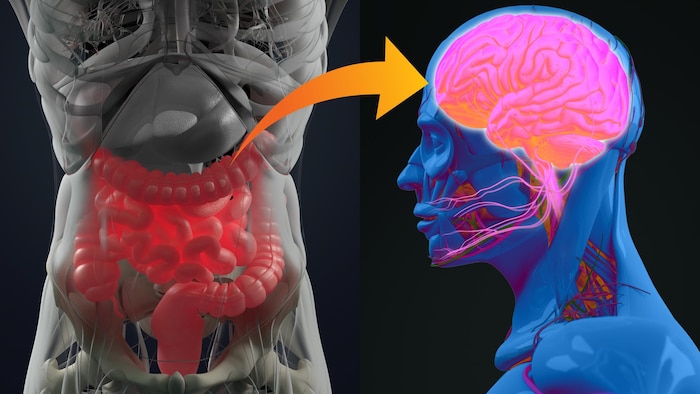Open in full screen mode Taking the supplements modified the participants' intestinal microbiota. The Canadian Press Daily intake of fiber supplements improved brain function in individuals aged 60 and over in just 12 weeks, shows a British study published in the journal Nature Communications (New window) (in English). Researchers at King's College London noticed that these supplements profoundly modified the participants' intestinal microbiota, notably by increasing the quantity of certain bacteria considered beneficial. It's interesting to see that they were able to observe these differences with an intervention which is still quite gentle, commented Professor Frédéric Calon, from the Faculty of Pharmacy of the ;Laval University. It's an intervention that is within everyone's reach. The study authors recruited 36 pairs of twins aged over 60 for their study. One twin received a fiber supplement each day and the other received a placebo. Neither the researchers nor the participants knew who received what. After 12 weeks, subjects given the fiber supplement showed superior performance on tests measuring brain function, reaction time and processing speed. These functions are important in everyday life and could, for example, allow you to recover in time to prevent a fall. Loading ELSEWHERE ON INFO: Murders in Barrhaven: police release names of victims and alleged killerLoading ELSE ON NEWS: Murders in Barrhaven: Police release names of victims and suspected killer And even if it is not possible, for the moment, to establish a direct causal link between the changes in the microbiota and the cognitive improvements observed, the observations remain intriguing, say the authors of the study. Recent research suggests that the intestinal microbiota could play an important role in cognitive and physical functioning during aging, we can read in the study. Additionally, evidence for the existence of the gut-brain axis is growing, including preliminary evidence of a beneficial effect of probiotic supplementation on cognition. Thus, the gut microbiota could represent a malleable therapeutic target for the prevention and reversal of muscle loss with age and age-associated decline in cognition. Study participants who received the fiber supplement also received two probiotics, inulin and FOS. Some of them then reported having eaten slightly less, and therefore reduced their caloric intake. And this is possibly where the mechanism responsible for the cognitive benefits observed is hidden, underlined Professor Calon. The subjects would have eaten a little less fat, a little less energy-dense food, he explained. And at that point, maybe that's what contributed to the effect on cognition. It's a hypothesis, but we have done a lot of work on animal models in which we clearly show that when animals eat too much fat, their cognitive abilities decrease. The study used fiber supplements, but the same kind of results could probably be achieved with a diet rich in soluble fiber, he added. It's not just with supplements, Professor Calon concluded. This is not shown in the study, but perhaps benefits could be obtained simply by improving the normal diet. Fava beans, Brussels sprouts, broccoli, carrots, sweet potatoes, pears, apples, figs, avocados, sunflower seeds, hazelnuts, oats and barley are examples of foods rich in soluble fiber.
Barrhaven murders: Police release names of victims and suspected killer
Murders in Barrhaven: Police release names of victims and alleged killer
Fibers for the proper functioning of the brain of seniors

